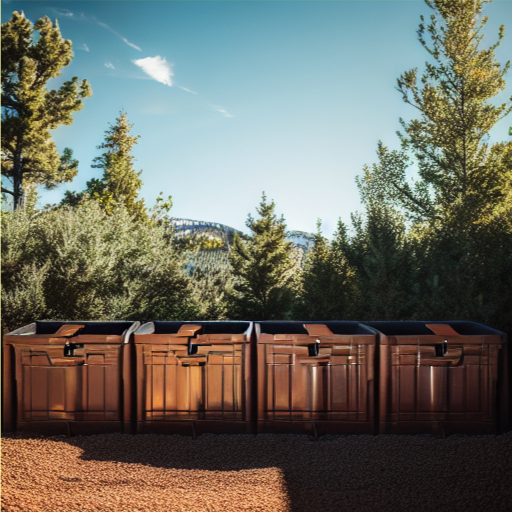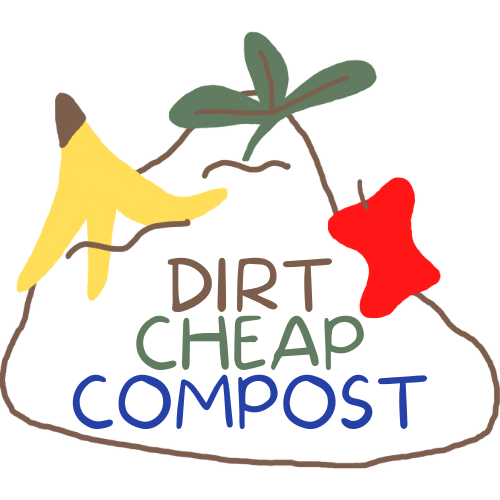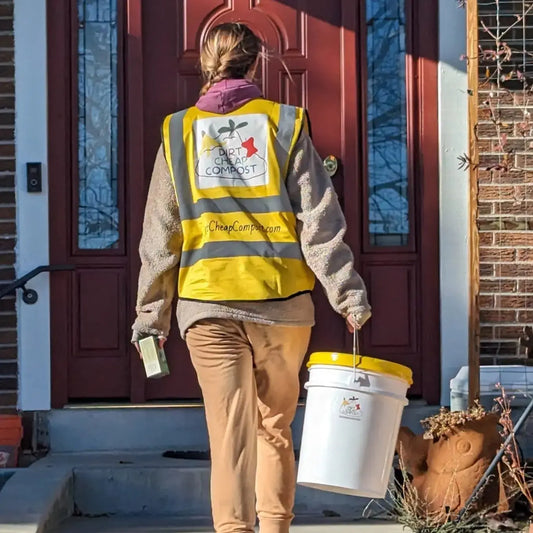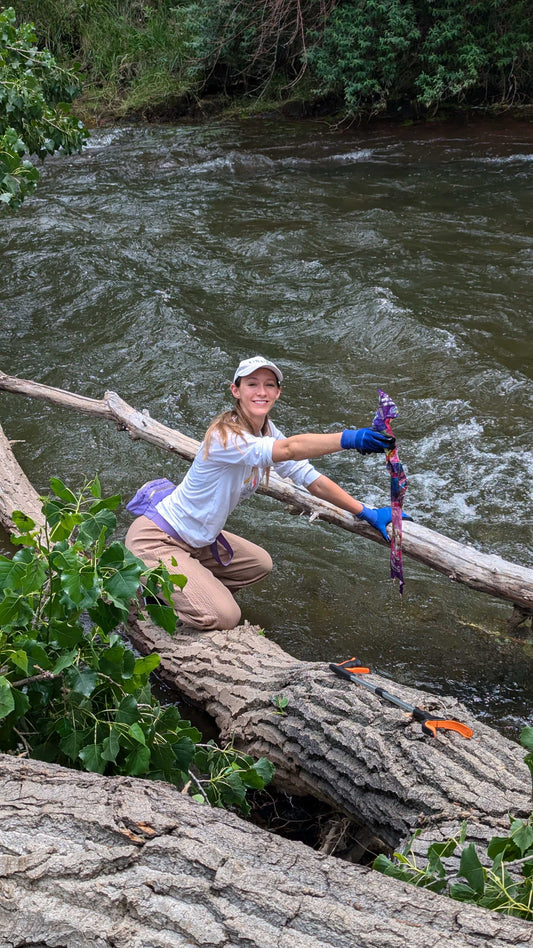Compost in Colorado: Year-Round Guide for At-Home and Service Options

So, you want to compost in Colorado.
Composting in Colorado offers unique challenges and opportunities due to its varied climate. From the hot summers to the cold winters, each season brings its own set of considerations for effective composting. Whether you're a seasoned composter or a newbie looking to reduce waste, this guide will walk you through the process of composting at home throughout the year, plus introduce you to a convenient option for homes in Arvada, Wheat Ridge, Lakewood, and other neighborhoods west of Denver.
Core 4 Colorado Compost Concepts
Understanding the Basics
Before diving into Colorado-specific seasonal tips, it's crucial to understand the basics of composting. Composting is the natural process of recycling organic matter, such as leaves and food scraps, into a valuable fertilizer that can enrich soil and plants. The key to successful composting is balancing 'greens' (nitrogen-rich materials like vegetable scraps) and 'browns' (carbon-rich materials like dried leaves).
Summer Composting: Embracing the Heat
Summer in Colorado is an ideal time to start or maintain a compost pile due to the warm temperatures that accelerate decomposition. Here are some tips for summer composting:
- Regularly turn your compost to ensure even decomposition and prevent odor.
- Maintain moisture, but don't overwater. Your compost should be damp, like a wrung-out sponge.
- Keep a balance of greens and browns to avoid attracting pests.
"Keep a balance of greens and browns" in composting refers to the practice of mixing nitrogen-rich materials (greens) and carbon-rich materials (browns) in the right proportions to ensure efficient and odor-free decomposition.
- Greens (Nitrogen-Rich Materials): These are typically moist and include items like fruit and vegetable scraps, coffee grounds, grass clippings, and plant trimmings. Greens are rich in nitrogen, which is essential for the growth of microorganisms that break down the compost.
- Browns (Carbon-Rich Materials): These are usually dry and include materials like leaves, straw, wood chips, paper, and cardboard. Browns are high in carbon, which provides energy for the microorganisms and helps control moisture and odor in the compost pile.
The ideal ratio is often considered to be about 2-3 parts browns to 1 part greens by volume. This ratio ensures that the compost pile remains well-aerated, moist, and free from odors. Too many greens can lead to a smelly, slimy pile, while too many browns can slow down the decomposition process. Balancing these elements creates an environment conducive to efficient composting, leading to a rich, crumbly compost ideal for gardening.
Preparing for Winter: Keeping Your Compost Active
As winter approaches, composting in Colorado can be challenging due to the cold temperatures that slow down the decomposition process. However, with the right techniques, you can keep your compost active through the winter:
- Insulate your compost bin with natural insulation like straw or leaves to retain heat.
- Chop up or grind up your compost materials into smaller pieces to speed up decomposition.
- Limit adding new material in deep winter; instead, start a new pile if needed.
The Easy Button: Compost Pickup Services
For Coloradans who find home composting too time-consuming or lack the space (or even the need for huge amounts of fresh soil), local compost pickup services like Dirt Cheap Compost offer a convenient alternative. These services typically involve:
- Providing you with countertop bags and a bin for your organic waste / food scraps.
- Regular weekly pickups of your compostable materials left inside the bin, which are then professionally composted at their own facilities. Just like municipal trash and recycling!
- The option to receive finished compost for your own gardening needs. (DCC will add this next year - not offered yet!)
All for one monthly price! (Ours is just $19/month.)
Benefits of Composting in Colorado
To wrap up, Coloradans seeking to compost their food and yard waste can look forward to:
- Reducing landfill waste and greenhouse gas emissions by over 50% compared to throwing food away.
- Enriching soil, helping retain moisture, and suppressing plant diseases.
- Promoting higher yields in your garden.
Composting in Colorado, whether at home or through a local compost pickup service like ours at Dirt Cheap Compost, is a fun, rewarding, and highly impactful environmentally friendly ritual. By following the year-round tips on this page, you can contribute to a healthier planet and enjoy the benefits of rich, fertile soil in your garden.
Remember, composting is a journey of learning and adaptation. Embrace the process and enjoy the rewards of your efforts!



